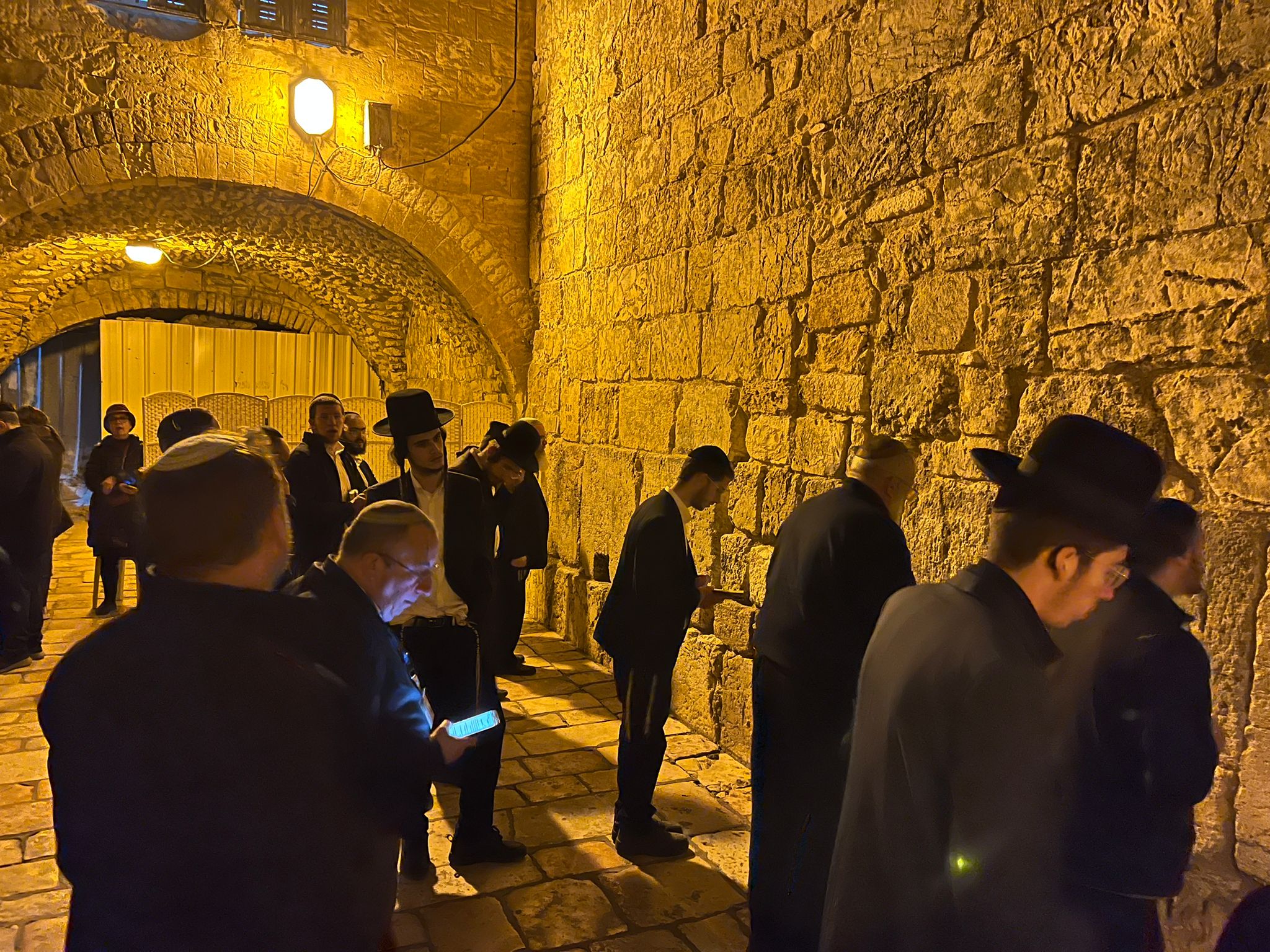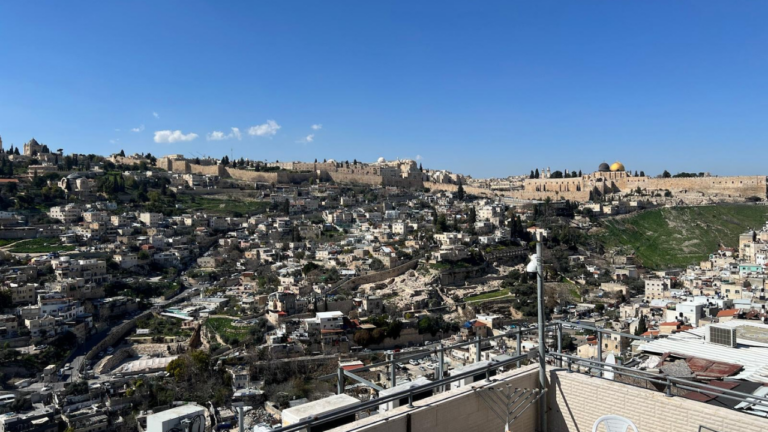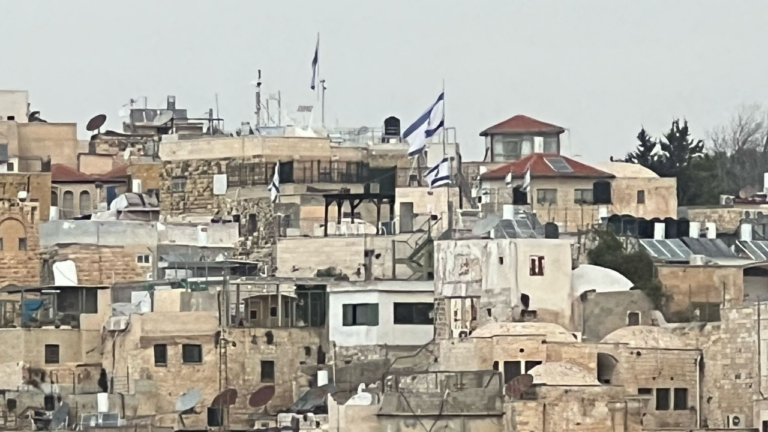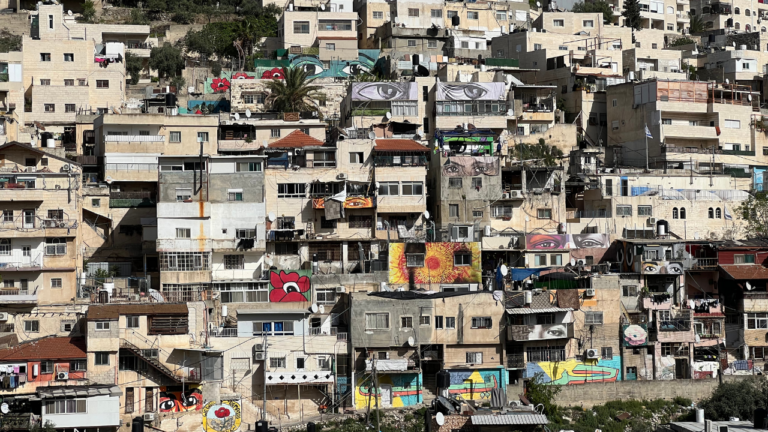The City of Spiritual Ambition
There is something strange about the way that all Jews celebrate Chanukah. Almost all Jews progressively add one candle a night, lighting one candle on the first day, two on the second day, etc. But according to the Gemara (Shabbos 21a), the mitzvah of lighting candles on Chanukah can be fulfilled by simply lighting one candle every night. The common practice of adding one candle a night (and in homes of Ashkenazi descent, a separate menorah for every member of the household), reflects the mehardin min hamehadrin (beautiful of the beautiful), the highest level of the mitzvah’s performance. Instead of lighting 8 candles in total, we light a whopping 38 or more.
At first glance, mehadrin min hamehadrin is just downright excessive. In Jewish law, there is always a concept of beautifying our mitzvah performance. But there is no other area of Jewish law in which there are two levels of mehadrin. In fact, the Gemara Bava Kamma (9a) informs us that the beautification of a mitzvah should never cost more than a third of the total amount required to purchase the items necessary for the mitzvah. Simple arithmetic will reveal that we spend far above that monetary limit when it comes to Hanukkah candles. By definition, we are spending at least 4 times the total amount of the most basic level of the mitzvah.
Chanukah defies another general halakhic principle. Normally, it is strictly forbidden to spend more than a fifth of one’s total assets to fulfill a positive commandment. And yet, the Rambam records that one should do anything within his or her power to acquire Chanukah candles, even selling property or collecting charity (Mishnah Torah, Hilchot Chanukah 4:12). In fact, Rabbi Meir Simcha from Dvinsk (19th century Jewish leader from Lithuania) writes (ibid) that the Rambam’s ruling applies to the mehardin min hamehadrin level of the mitzvah. Meaning, not only does the most basic level of the mitzvah of Chanukah candles demand spending more than a fifth of one’s assets; one must sell everything even for the beautification of the mitzvah!
There is something I find even more surprising: every Jew seems to fulfill the highest level of the mitzvah. There is no other area of Jewish practice in which everyone seems to be striving for the highest level of mitzvah performance. Why do we spend so much and try so hard to beautify this particular mitzvah? What is it about Chanukah that makes it so unique, both in Jewish law and practice?
The answer to these questions lies in the origins of Chanukah. After dozens of years in which Jerusalem was ravaged by marauding Greek armies and intense Hellenization of its occupants, the Chashmonaim finally succeeded in taking back the holy city and rededicating the Beit HaMikdash. With only one day of pure oil in reserve, they lit the menorah, expecting the flames to go out. Miraculously, the oil lasted for eight days, providing sufficient time to procure additional oil for the Beit HaMikdash. Many commentators (see Pnei Yehoshua to Shabbos 21b) point out that the miracle of the oil was technically unnecessary to begin with. Based on the principle of טומאה הותרה בציבור, even impure oil should have been sufficient to light the menorah.
The Chashmonaim’s insistence on using the pure oil points to the essence of Chanukah and the city of Jerusalem: never settling for less, always striving for more. The whole story of Matisyahu and his sons highlights spiritual maximalism (to borrow the language of my esteemed Rebbe, Rav Michael Rosensweig), an insistence to never settle for anything less than the best. The Makabim could have decided to follow the Torah in secrecy, waiting for the waves of persecution to roll away. But they wanted more. They wanted the glory of Yerushalayim and the Beit HaMikdash to be restored. Jerusalem is described as כלילת יופי, entirely beautiful. When cleansing the holy city from its Greek contamination, how could they possibly use impure oil? Yes, they technically could use impure oil. But the entire ethos of these guardians of Jerusalem was to never settle for anything less than the best. Only the purest oil, מהדרין מן המהדרין, would be sufficient for reinstating the temple.
When God allowed for that oil to last for so many days, He wasn’t only providing a convenient miracle; He was providing His stamp of approval to the attitude of spiritual ambition that fueled the rebellion from the start.
Many sources indicate that our personal chanukiyot are miniature expressions of the Menorah in in Jerusalem. Tepid halachik observance and bland spirituality cannot exist in our holy city; only מהדרין מן המהדרין can suffice. As we light our candles to commemorate this awesome expression of divine favor, we must remember that the holy city for which we constantly yearn demands the highest spiritual standards. Only with divine service that is כלילת יופי, the purest of the pure, can we merit to totally reclaim and rededicate Yerushalayim.



